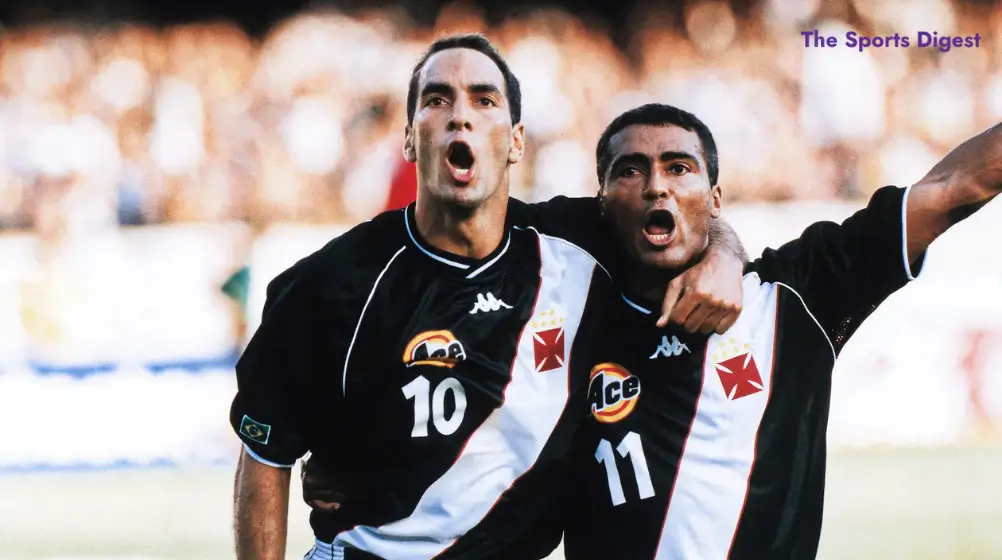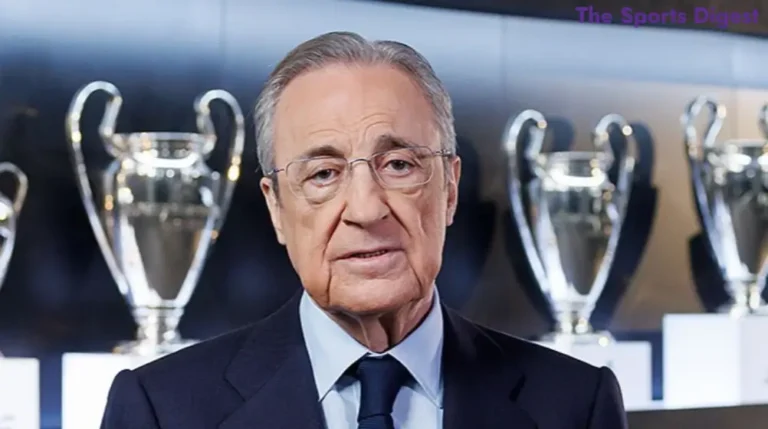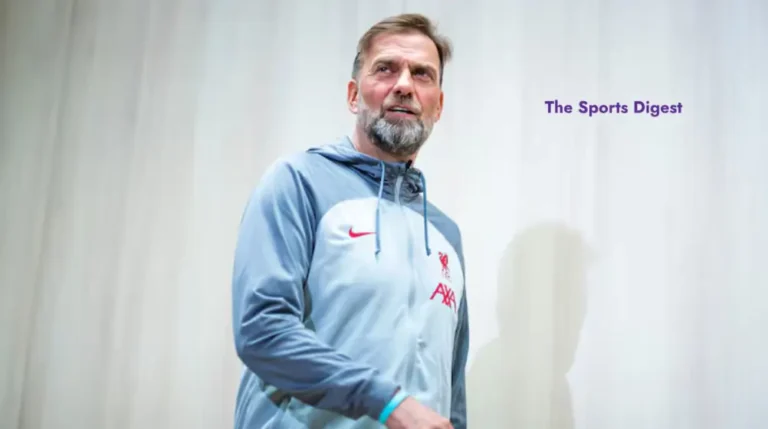Edmundo: O Animal
Sigmund Freud’s concept of the id serves as a fitting lens through which to view Edmundo Alves de Souza Neto, better known simply as Edmundo. As Christopher Weir articulates, Edmundo embodied those primal, instinctual drives that lurk within us all—impulses that demand satisfaction without concern for consequence. Unlike most professional footballers who learn to harness and channel such urges, Edmundo’s career would be defined by his persistent failure to subdue the animal instincts that simultaneously fueled his brilliance and undermined his potential.
Table of Contents
Early Life and Background
Edmundo‘s story begins in the unforgiving slums of Rio de Janeiro, specifically on Teixeira de Freitas Street in Niterói. Born into poverty, his childhood was marked by the struggle and deprivation common to Brazil’s favelas. While formal education remained a distant luxury, the beaches of Rio became his classroom, and football his singular curriculum. The sand beneath his feet provided not only a training ground but also a medium through which he could express himself—a stark contrast to the confines of his economic reality.
Discovery of Talent and Early Career
Known affectionately as “Dinho” in his youth, Edmundo demonstrated a laser-like focus on football from an early age. He possessed a natural talent as a dribbler that set him apart, though his sharp temper was equally evident even then. His aunt Maria played a pivotal role in nurturing his development, recognizing both his gift and his drive. Fortune smiled on the young Edmundo when, at age 15, he was spotted by coach Tinoco who facilitated his entry into Botafogo’s prestigious youth system—a potential escape route from the favelas that had shaped him.
Early Signs of Self-Destruction at Botafogo and Move to Vasco
Despite the opportunity presented by Botafogo, Edmundo’s self-destructive tendencies emerged early. His behavior proved so problematic that he was eventually expelled from the club’s youth lodging—a clear sign of the disciplinary issues that would plague his career. Yet his talent remained undeniable. When he scored an astonishing goal in a youth match, it caught the attention of Vasco da Gama, who decided to take a chance on the volatile youngster despite his checkered reputation.
Debut at Vasco and Early Success
Edmundo’s senior debut for Vasco came in 1992, and he quickly made his mark by contributing significantly to their Carioca State Championship victory. On the pitch, he formed a formidable partnership with the experienced Bebeto, displaying the technical brilliance that would become his hallmark. However, his strong personality and confrontational nature soon led to clashes with teammates and opponents alike—early warning signs of the volatility that would define his career.
Transfer to Palmeiras and Initial Triumphs
Later in 1992, Edmundo’s burgeoning reputation earned him a record transfer to Palmeiras. His impact was immediate and substantial, helping the club secure two consecutive Brasileirão titles and a State Championship—achievements that cemented his status as one of Brazil’s premier talents. It was during this period that he acquired the nickname “O Animal,” a moniker that captured both his ferocious playing style and his unpredictable temperament. The name would prove prophetic when, during a heated derby against São Paulo, Edmundo’s wild side emerged in spectacular fashion.
Escalation of On-Field Misconduct
Edmundo’s time at Palmeiras was marred by a catalog of disciplinary incidents that increasingly overshadowed his footballing prowess. From punching and slapping opponents to pushing a referee—an offense that earned him a substantial suspension—his behavior became increasingly erratic. A fistfight with teammate Antônio Carlos further damaged his reputation, while an incident involving Ecuadorian police during a Copa Libertadores match demonstrated that his misconduct had transcended national boundaries. The animal within was increasingly breaking free of its constraints.
Move to Flamengo and Off-Field Tragedy
In 1995, Edmundo joined Flamengo amid high expectations, but the move coincided with a troubled period for the club. While his individual performances showed flashes of brilliance, the team’s struggles mirrored his own mounting personal problems. Then came the incident that would forever alter the trajectory of his life and career: in December 1995, Edmundo was involved in a horrific car accident that claimed the lives of three people. Charged with involuntary manslaughter and facing intense public scrutiny, his contract with Flamengo was terminated—leaving his career in limbo and his freedom in jeopardy.
Attempts at Redemption and Return to Vasco (First Stint)
In the aftermath of the accident, Corinthians offered Edmundo a lifeline, but his tenure there proved brief. It was his return to Vasco that provided the stage for what many consider the finest period of his career. His form reached unprecedented heights as he shattered the Brazilian scoring record, demonstrating that his talent remained undiminished despite his tribulations. Yet when it came to the 1998 World Cup, Brazil’s coach Zagallo harbored reservations about Edmundo’s potential influence on team dynamics, opting to use him sparingly despite his scintillating domestic form.
1998 World Cup and Move to Fiorentina
Although Edmundo was included in Brazil’s squad for the 1998 World Cup in France, his tournament was marked more by complaints about playing time than by on-field contributions. Nevertheless, his exceptional goal-scoring record at club level attracted interest from abroad, leading to a transfer to Fiorentina in Italy’s Serie A—a move that promised to elevate his career to new heights on the European stage.
Turbulent Time in Italy and Return to Vasco (Second Stint)
Initially, Edmundo’s Italian adventure began promisingly, with his technical skill and flair impressing the Fiorentina faithful. However, his time in Florence would be defined by a controversial decision that epitomized the self-destructive tendencies that had followed him throughout his career. When star striker Gabriel Batistuta suffered an injury during a critical phase of the season, Edmundo chose to exercise a clause in his contract allowing him to return to Brazil for the Rio carnival—a decision that infuriated his teammates, management, and supporters. This act of perceived abandonment soured his relationship with the club, eventually precipitating his return to Vasco.
Feud with Romário and World Club Championship
Edmundo’s second spell at Vasco was complicated by his notorious feud with fellow Brazilian star Romário. Their relationship, characterized by mutual animosity and professional rivalry, created a volatile dynamic within the team. Yet paradoxically, on the pitch, they formed a devastating partnership when their individual goals aligned with the team’s objectives. This was never more evident than during the 2000 World Club Championship, where their combined talent helped Vasco overcome Manchester United—a victory that stands as one of the highlights of Edmundo’s turbulent career.
Continued Off-Field Issues and “Worst Moment”
Even as his on-field performances occasionally reminded the world of his exceptional talent, Edmundo’s off-field controversies continued unabated. He faced widespread criticism for giving alcohol to a chimpanzee at his son’s birthday party—an incident that animal rights activists condemned and that reinforced his ‘Animal’ nickname in the worst possible way. However, the nadir of his career came during the final of the World Club Championship when he missed a crucial penalty that cost Vasco the title—a moment of failure that would haunt him for years to come.
Later Career and Personal Tragedy
Following the disappointment of the World Club Championship, Edmundo’s career entered a nomadic phase, with brief and largely unremarkable spells at various clubs. Away from football, tragedy struck once more when his brother was murdered in 2002—another personal blow that highlighted the contrast between his privileged position as a footballer and the harsh realities still faced by his family.
Resolution of the Manslaughter Case and Reflection on His Legacy
It wasn’t until 2011, sixteen years after the fatal car accident, that Edmundo finally found legal closure when the statute of limitations expired on his manslaughter case. This resolution, though legally conclusive, did little to settle the moral questions that had followed him throughout his career.
Edmundo’s legacy remains complex and contradictory. Was he a victim of his upbringing, unable to escape the survival instincts forged in the favelas? Or was he simply unwilling to tame the animal within, preferring to live by his own rules regardless of the consequences? Whatever the verdict on his character, one thing remains certain: at his best, on the pitch, Edmundo was a footballer of extraordinary talent—unassailable in his technical brilliance, even if ultimately undone by his own nature.
Have you ever read an article like this?
There are no reviews yet. Be the first one to write one.






